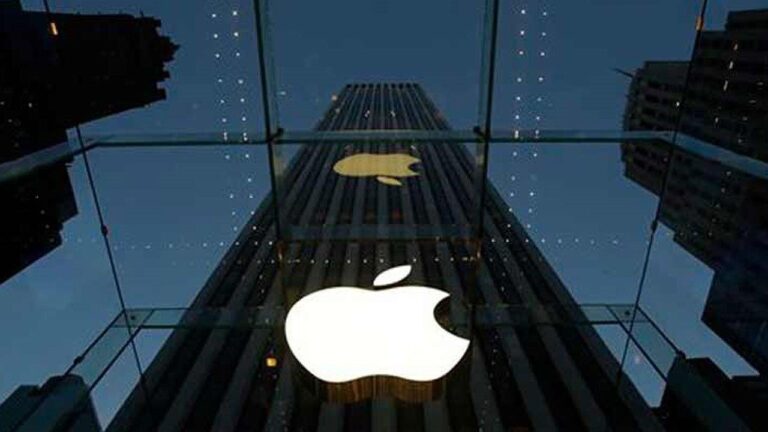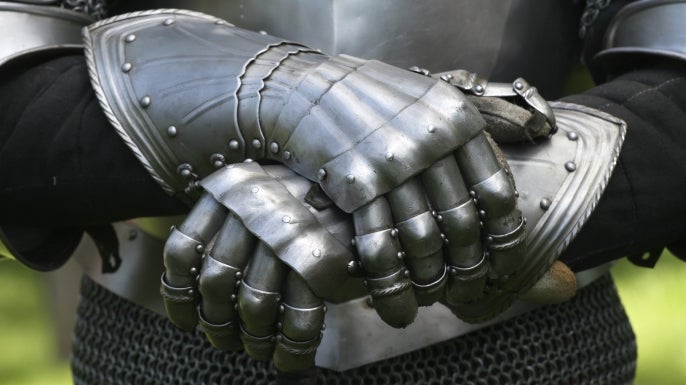The ban won’t be overturned but it is irrelevant.
- The endless back and forth continues with Apple now having a ban on Samsung products but it lacks bite.
- The final ruling on Apple’s July 2011 complaint against Samsung has found that select Samsung products do infringe two patents.
- One is related to the user interface and the other regarding the detection of headphones when plugged into the device.
- On the basis of infringement, an import ban has been ordered which will come into force after a 60 day period within which the White House can issue a presidential veto.
- In this case it almost certain that no veto will be issued.
- This is because these patents are not Standard Essential Patents (SEP) and therefore not subject to FRAND.
- Please see IPR. – The weakness of essential (part VI) for more details on the issue of SEPs and import bans / injunctions.
- Apple may feel some sense of victory as a result of this but that’s all it is going to get for two reasons
- First. The affected products are now so old that they make up less than 1% of Samsung’s US revenues.
- Second. Samsung has demonstrated and the judge has accepted that subsequent products have implemented workarounds that no longer infringe the patents.
- Apple of course is contesting this but is yet another battle to be fought another day.
- I very much doubt if this will bother Samsung much or affect its willingness to capitulate in its on-going war with Apple.
- In fact the share price is actually up today which I think it’s a reflection of the irrelevance of this issue.
- At some point (I am hopeful this year) something will happen that will push the two sides closer together.
- Typically, it will be the way a trial is progressing or a something pieced together during the pre-trial discovery phase that shifts the balance.
- When this happens, a deal usually swiftly follows and suddenly the war will be over.
- I remain of the opinion that a deal is in the interest of both Apple and Samsung and that Samsung will end up a net payer to Apple.
- This is because the crippling legal fees that both sides are running up are likely to be greater than any potential royalties paid.
- It is only in the interest of the lawyers to keep the war going.









Blog Comments
Adam Nealis
August 13, 2013 at 12:45 am
I’m getting tired of this endless litigation.
They’re behaving like stubborn children.
How are they adding value for their shareholders?
windsorr
August 13, 2013 at 1:20 pm
Quite the contrary they are destroying it at a healthy rate of knots
Tim Nash
August 13, 2013 at 5:18 pm
What will certainly destroy shareholder value will be the fines levied by the EU on Samsung (and Google-Motorola) for their abusive use of SEPs. If the EU decides to make an example of them because of their failure to offer licences on FRAND terms Samsung, like Google, could be fined over a billion euros or up to 10% of their turnover. Apple could then, like Microsoft is against Motorola, follow up with a breach of contract action to recover legal and other expenses.
windsorr
August 15, 2013 at 11:43 am
That is true but SEP’s are a very very grey area. Many SEPs are only declared essential which means that its not 100% sure whether or not they need to be infringed to implement a standard. Many of the SEPs asserted in these cases are of this nature. I would expect this to be the defence against EU fines is it comes to that ensuring an appeals process that drags on for years.
Tim Nash
August 15, 2013 at 12:13 pm
A standard setting body, like ETSI, allows groups of companies to work together in a legal cartel. In return the companies are required to licence all patents declared as SEPs, on FRAND terms. In their failure to offer FRAND terms to Microsoft and Apple, Google-Motorola and Samsung risk, through breach of contract with ETSI, being treated as illegal members of a cartel. If this happens, the fines will be large and the appeal process fairly short.
Tim Nash
August 13, 2013 at 1:06 am
“This is because the crippling legal fees that both sides are running up are likely to be greater than any potential royalties paid.”
Even at several hundred million a year, the legal fees are not crippling for either company. Indeed if Apple had been willing to settle for royalties equivalent to Samsung’s legal fees, this would have been settled long ago.
Judging by the settlement with HTC, Apple wants an agreement that certain areas of patents are not covered and that Samsung will not copy Apple’s designs. As Samsung has so far found it easy and cheap to ignore Apple’s patents and has arguably become the largest cellphone manufacturer by using them, it will want access to the whole portfolio.
Then there is the problem of royalty rates. From the evidence in the San Francisco trial about the early negotiations, Apple wanted a minimum of about $20 per cellphone. Even if that has now dropped to Microsoft royalty rates of $12 to $15 per cellphone, Apple would still have to get a $1bn judgement every year and significant injunctions for the costs to make it worthwhile for Samsung to pay substantial royalties. Unless Apple manages to effectively devalue Samsung cellphones in a major market, that is the USA or Europe, this will keep many lawyers richly employed for years.
windsorr
August 13, 2013 at 1:26 pm
several hundred million a year may not be crippling to the companies themselves but it cripples both profit margins and returns to shareholders.
The thing is here that Apple needs to realise that it is in its interests to settle the case. The legal cycle is FAR longer than the phone cycle meaning that by the time it has won a remedy, the device will no longer be shipping. Back royalty awards seem to be endless reduced on a appeal and the money takes years to turn up. Hence it is in Apple’s interest to settle this case and get some royalties flowing in even if they are lower than they think they are worth. (Apple has very inflated view of its own self worth anyway). Otherwise the value will spend its time locked up in appeals and slowly being bled out to the lawyers….Lawyers are the only winners from this mess with Shareholders ranking dead last in the process.
Tim Nash
August 13, 2013 at 5:36 pm
Eternal litigation is the price of innovation.
If we take Jobs figures of $5bn and 5 years of R&D to produce the iPhone as a realistic baseline and add in the expenditure since to keep the iPhone in the leading rank, Apple expecting Samsung to pay large sums in royalties is reasonable. From Samsung’s perspective, Apple has yet to prove its patent portfolio is that valuable.
windsorr
August 15, 2013 at 11:46 am
true but then you have to make a case that its the infringement of the patents that created Samsung’s value which is not 100% accurate. All of the other Android vendors infringe the same patents but are losing money. Hence there is something about Samsung that is proprietary to it that has had a meaningful effect on its success in the smartphone market.
Colin
August 13, 2013 at 1:43 pm
Radio Free Mobile makes a mistake in characterising the Apple / Samsung patent litigation as two obstinate IP owners duking it out at huge cost when they should settle.
Apple’s aim is to stop Samsung using its IP and to get compensation for loss of business so far. Apple will also move heaven and earth to further differentiate its products from Android phones and tablets with innovation that benefits users and disrupts established markets. Apple is making good progress towards all of these goals, as we’ll see when this autumn’s product announcements appear.
Samsung’s defensive litigation has been almost entirely an abuse of its FRAND licensing obligations in connection with components that rely on standards essential patents. Hence, various anti-trust investigations and the presidential veto of a mistaken ITC judgement in the USA.
Communication of what’s happening is hugely distorted in the media. Google in particular seems to be spending a fortune on getting out an unduly positive message about Android and seems to have set an agenda that few challenge. Perhaps media organisations are as scared of offending Google as PC manufacturers once were of offending Microsoft.
It’s a shame that Radio Free Mobile seems to be going along with the unthinking herd. Its readers should expect better. Richard would do himself and his readers a favour if he were to learn a great deal more about Apple, Google, Samsung and what’s happening in the phone market.
windsorr
August 15, 2013 at 11:38 am
Colin makes the mistake of not living in the real world. In an ideal world there is a patent system that prevents patent abuse and protects the rights of the holders in a fair and just way. Coin should realise that the enforcement of patents has very little to do with what is fair and what is ideal and much more to do with what one can prove and when one can prove it. Hence there are practicalities involved which Colin seems to have ignored. The main issue is that the legal cycle is much slower than the handset cycle meaning that by the time one has a finding of infringement the infringing product is no longer shipping. This has the effect of knocking almost all of the teeth out of any remedy imposed.
If Colin reads some of other posts he will see that RFM agrees that Samsung abused the patent system with its use of SEPs. RFM applauds the White House veto as a way of making the patent system better and closer to that which Colin dreams of. (http://www.radiofreemobile.com/ipr-the-weakness-of-essential-part-vi/)
In almost every legal battle of this nature BOTH parties end up better off if a settlement can be reached. This is so much the case that every practitioner of the law who has his clients interest at heart rather than his fee schedule will recommend reaching a settlement rather than fighting it out in court.
It Colin reads many of the other blogs on Android he will discover that RFM does not follow the herd or Google’s mantra on Android. Quite the reverse. RFM believes that Android is both fragmented and vulnerable to market share loss and that Google is a company run solely for the benefit of its employees.
Colin
August 15, 2013 at 5:19 pm
You make my pony for me with this:
“The main issue is that the legal cycle is much slower than the handset cycle meaning that by the time one has a finding of infringement the infringing product is no longer shipping. This has the effect of knocking almost all of the teeth out of any remedy imposed.”
This is often repeated by the unthinking herd but not true. If Apple succeeds in having Samsung products banned for patent infringement, the ban will apply to other Samsung products that infringe the same patents. You should be aware of this.
Here is the detail, from Floriam Muller’s FOSS Patents:
“the ITC has “banned all Samsung ‘electronic digital media devices and components thereof’ that infringe in the same way as certain exemplary investigated products do, regardless of their name or release date”. There’s been too much inaccurate, incompetent reporting (including commentary by financial analysts who failed to do their homework). I saw plenty of headlines on Twitter that said the ITC banned only older Samsung products. The ruling is not about old versus new. It’s about infringing vs. non-infringing. If Samsung modifies a product that was investigated and found infringing so as to steer clear of infringement now (for example, new firmware could be designed to longer infringe the “Steve Jobs patent”), then the ban doesn’t apply. But if a new product, such as the S4, infringed in the same way as an exemplary infringing product accused by Apple in this investigation, then the ban would apply unless Samsung could argue that the new product is licensed (so far, Apple has not extented a non-SEP license to Samsung) or no longer imported (but assembled in the United States, as Google submits with respect to the Moto X) or that it falls without the scope of the investigation, which is however defined (very broadly) by its title, “Certain Electronic Digital Media Devices and Components Thereof”, and not by a few names of obsolete products.”
windsorr
August 15, 2013 at 6:25 pm
Yes but again this is an ideal scenario. Apple tried and failed to get a number of more recent Samsung devices included in the big law suit it won against Samsung (August 2012). To my understanding Samsung would only have to prove that the device has not infringed the patent if the patent has been asserted against it in the first place and that the patent has been found to be valid. This is why the devices against which Apple has won a finding of infringement are now only a tiny portion Samsung’s portfolio. Take the recent ban for example. The ITC complaint was made by Apple in July 2013 and the Ban granted in August 2013. It took 2 years.
“the ITC has “banned all Samsung ‘electronic digital media devices and components thereof’ that infringe in the same way as certain exemplary investigated products do, regardless of their name or release date”. To me this means that only those that have been shown to infringe not every device under the sun. The legal system rests on the proving beyond reasonable doubt and innocent until proven guilty which basically means that it is up to Apple to show infringement of every Samsung device that it thinks is infringing. To be allowed to ship the product again Samsung must show that it has implemented a work around. In the recent ITC case where Apple won a ban, Samsung did just that with its more recent products against which infringement had been alleged.
IN the case heard by Judge Lucy Koh, Apple tried to get more of Samsung’s products added to the roster of infringers against which remedies were sought but failed to do so.
If what you say is true then Apple should have trounced Samsung by now but yet it has failed to do so. So either Apple’s legal team are bunch of cash gobbling morons or the situation is much more grey and less ideal than it would seem. I reckon its the latter.
Colin
August 15, 2013 at 5:22 pm
In line 1 of my last post, pony should have read point! Sorry.